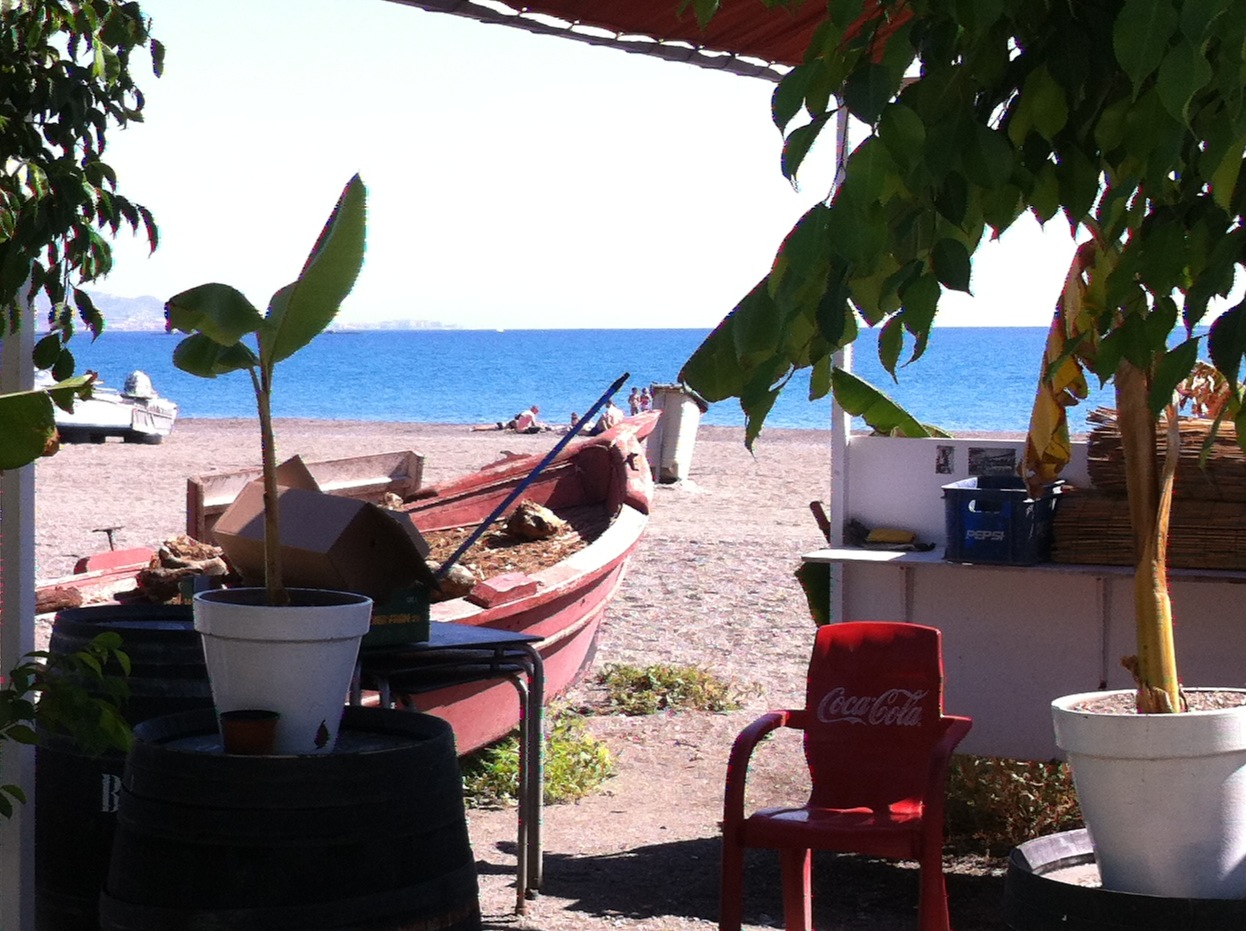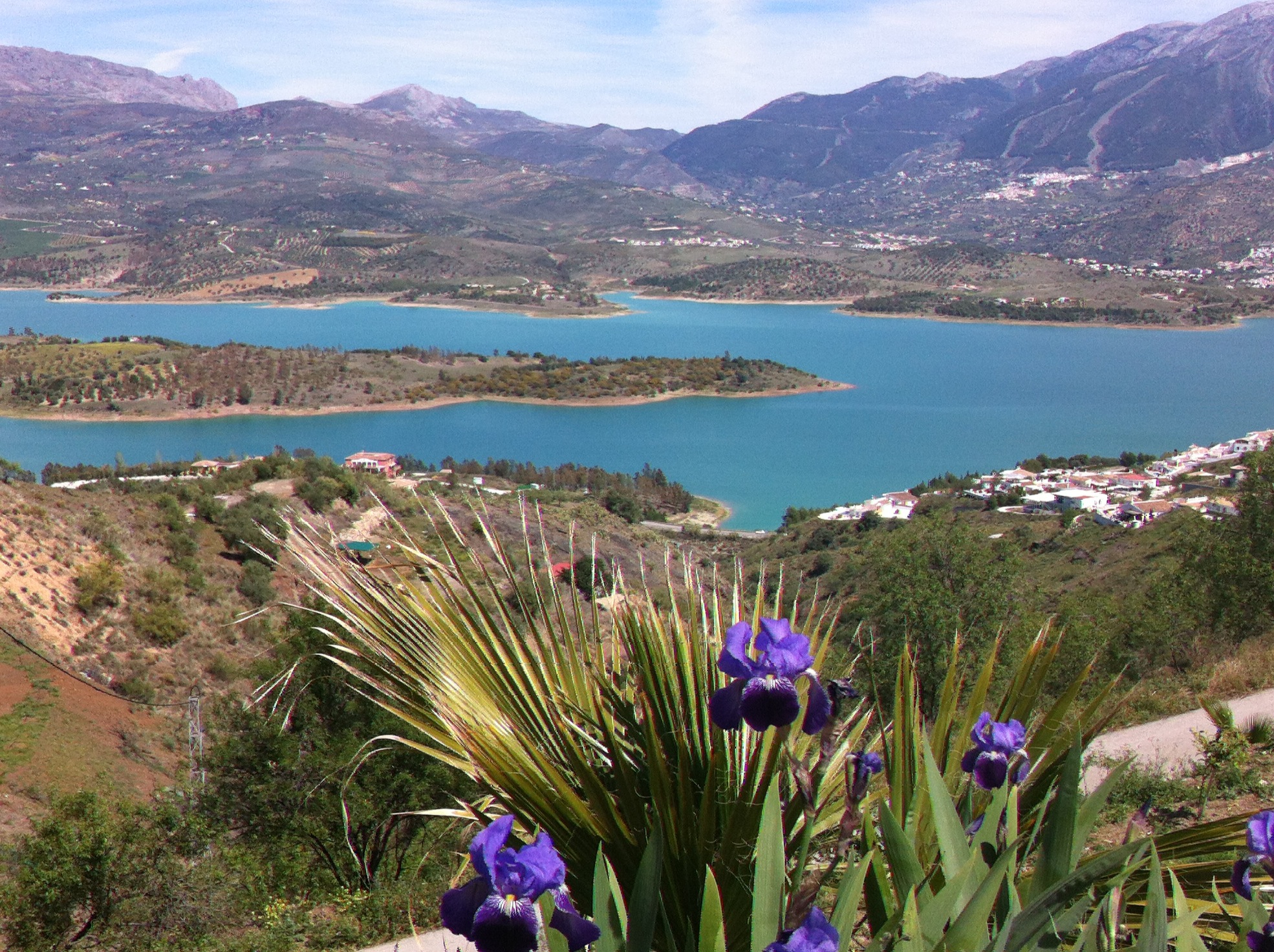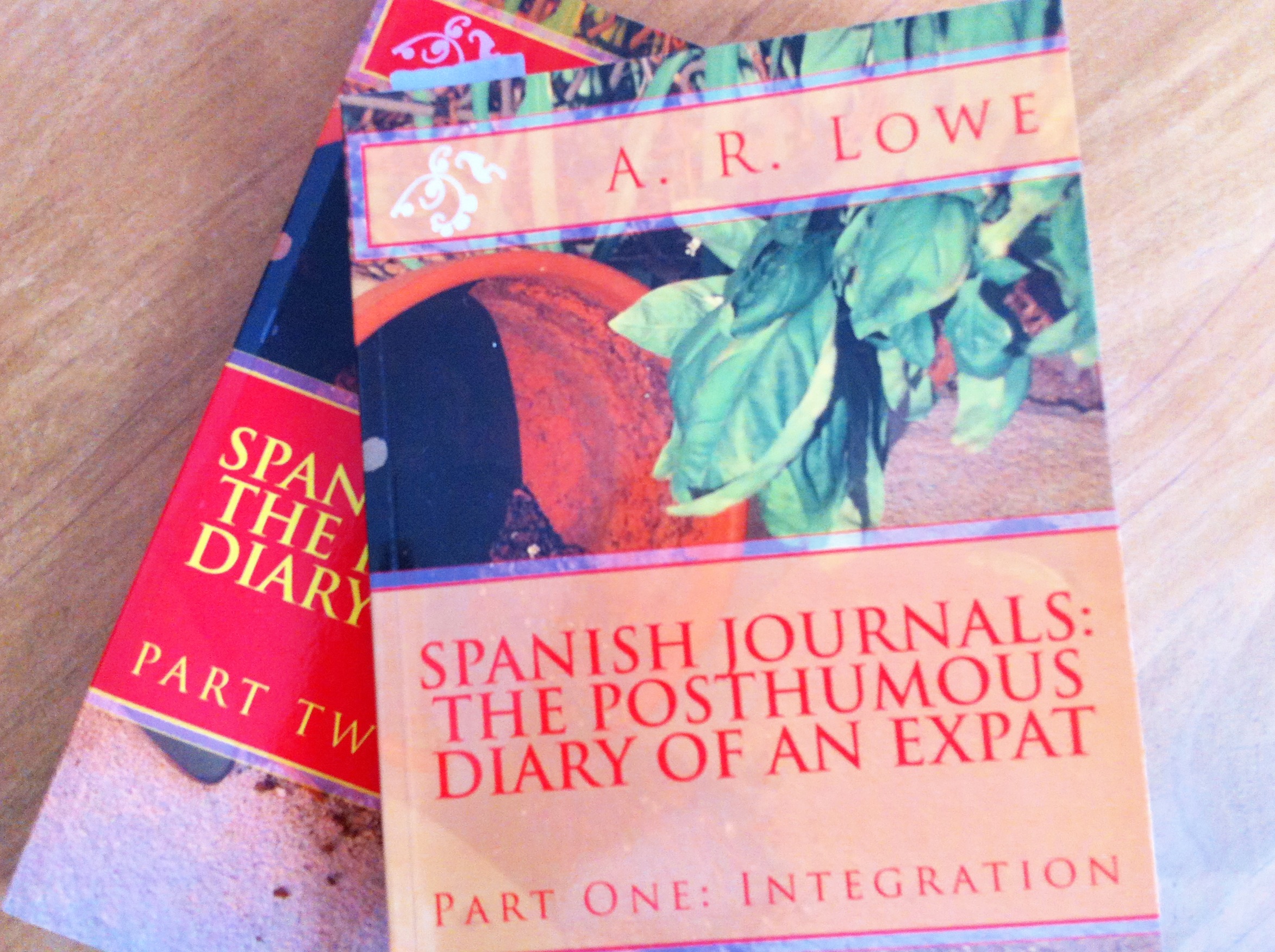Who are we? Those who are seeking the sun? We who have packed up our belongings in one country, and unpacked them in another? Los que buscan el sol.
 Some came with hopes of work, or to bring up children in a more outdoor environment. Some came already retired, to enjoy their later life on a terrace in the warm. Some of us say to ourselves that we find ourselves in Spain because of the culture, the people, the food and the language, as well as the climate.
Some came with hopes of work, or to bring up children in a more outdoor environment. Some came already retired, to enjoy their later life on a terrace in the warm. Some of us say to ourselves that we find ourselves in Spain because of the culture, the people, the food and the language, as well as the climate.
But let's be honest - we came because of the sun. We came so that we could put endless photos on Facebook of the swimming pool, the mountain views, the sandy feet resting on the rails of a chiringuito, the dining table on the terrace with the artfully-placed wine glasses. We came so that the cries of "Oh you're so lucky!" from a damp and rainy Britain would bounce from our iPads and reassure us we have made the right life choice.
The experiences gained since making the move have been manifold. In your own country, it takes about 30 years to piece together how to speak, how to open a bank account, how to see a doctor or a dentist, how to get a National Insurance number, how to pay tax, how to get a passport, how to buy a house, how to pay water and electricity bills, how to negotiate a loan, how to tax a car, and how to vote in elections. When you change countries, you learn how to do ALL those things in about six months, in a different language, administering the life of a new immigrant, plus integrating into a new culture.
So let's give ourselves a pat on the back. We're not unique, what we have done isn't that special, and there are a heck of a lot of us (more people leave Britain every year to live elsewhere, than move TO Britain). But having said that, at least we did it. Huge numbers think about it, many talk about it, some plan it, and fewer do it. But we have.
 Last month I had the enormous pleasure of meeting one of my favourite authors. Andy Lowe made the jump in his early 20s, lived in Spain for 18 years and married a Spanish woman. Although currently in England for work, he continues to visit regularly, and the majority of his published books are set in Spain. His greatest character, Ernest Postlethwaite, along with his long-suffering wife Pamela, is the archetypal Englishman in Spain. Pompous, naive, and totally convinced that he is the only expat ever to be doing it "properly", he is supremely lacking in self-awareness. These finely-observed parody diaries lead us through "Integration", "Invasion" and "Consolidation" ..... and the final part of Ernest’s story will be written later this year.
Last month I had the enormous pleasure of meeting one of my favourite authors. Andy Lowe made the jump in his early 20s, lived in Spain for 18 years and married a Spanish woman. Although currently in England for work, he continues to visit regularly, and the majority of his published books are set in Spain. His greatest character, Ernest Postlethwaite, along with his long-suffering wife Pamela, is the archetypal Englishman in Spain. Pompous, naive, and totally convinced that he is the only expat ever to be doing it "properly", he is supremely lacking in self-awareness. These finely-observed parody diaries lead us through "Integration", "Invasion" and "Consolidation" ..... and the final part of Ernest’s story will be written later this year.
I read these "diaries" and laughed out loud. I recognised Ernest - I had met him here a dozen times. Or parts of him. He seemed to me to be made up of all the elements of ex-pat-shire that I observe. And then a sinking feeling hit me. I recall that in the early 1980s I was a stage manager at the Theatre Royal in Windsor, where a crowd-pleasing play by Alan Ayckbourn was staged twice a year to fill the coffers. Alan Ayckbourn used to gently send up the comfortable middle-classes by creating characters we could all laugh at. In the interval I used to enjoy hearing audiences saying "Oh darling I know someone JUST like that!", never recognising themselves in the characters. So is there a bit of Ernest in all of us? Los que buscan el sol? Inevitably. There must be. For the half million or so British living in Spain, there are about half a million different ways of doing it. There is no right way, no one way. We are all treading our own paths. I recognise that at times I am perhaps a bit earnest, but ironically that is in an attempt to avoid being too Ernest! He's the character we don't want to be, despite his efforts to integrate and learn the language. Because Ernest looks down on everyone, the local Spanish and the immigrants alike, musing from up there on his pedestal.
 So who are we, those who seek the sun? Los que buscan el sol? We are optimists - that's pretty essential. We are fortunate, as we had the choice to do it. Whatever our motivations, we are all, every single one of us, doers. Not thinkers or dreamers, but people who actually did it. And we became learners - in and out of the town hall more often than we imagined, sorting all those little problems, beating ourselves up for getting it wrong, without giving ourselves the credit for the steepness of that learning curve. Squeezing a lifetime of learning into six months.
So who are we, those who seek the sun? Los que buscan el sol? We are optimists - that's pretty essential. We are fortunate, as we had the choice to do it. Whatever our motivations, we are all, every single one of us, doers. Not thinkers or dreamers, but people who actually did it. And we became learners - in and out of the town hall more often than we imagined, sorting all those little problems, beating ourselves up for getting it wrong, without giving ourselves the credit for the steepness of that learning curve. Squeezing a lifetime of learning into six months.
Thus, here we are, this motley bunch of immigrants. We have sought the sun, we have chosen Spain, this is where we have unpacked our boxes. Hats hung, this is where we call home.
Outside, the sun is shining. Ernest would be studying his subjunctives and declaring them unnecessary. The final book will presumably tell of his end. The diaries are, after all, posthumous. The art of great writing is to create a  character whose end you don't want to see. I don't want Ernest's diaries to finish - he's accompanied me on my Spanish adventure and I'll miss the contrary old sod. Whether his wife Pamela feels the same will emerge in book four, I suppose. I hope you'll join me, and Ernest, on his journey.
character whose end you don't want to see. I don't want Ernest's diaries to finish - he's accompanied me on my Spanish adventure and I'll miss the contrary old sod. Whether his wife Pamela feels the same will emerge in book four, I suppose. I hope you'll join me, and Ernest, on his journey.
Look on Amazon or other sellers for Spanish Journals Posthumous Diaries http://www.amazon.co.uk/Spanish-Journals-Posthumous-Diary-Integration-ebook/dp/B00AGXT6JW and prepare to be hooked. Kindle prices vary but the books are usually between one and two pounds or euros.
© Tamara Essex 2014
(Note – many thanks for all the lovely messages after last week’s post, they were very much appreciated)
THIS WEEK'S LANGUAGE POINT:
Tiempos pasados. Past tenses. Problems about when to use the imperfect and when to use the preterite.
Turns out that to say “I was walking on the beach” you wouldn’t put walking into the imperfect – Yo andaba por la playa – because that would mean that you used to walk regularly on the beach but you don’t any more. We have to say Estaba andando por la playa, putting the ESTAR part into the imperfect, not the ANDAR part. OK, I can do that.
The imperfect is used when the action is interrupted and there’s more to say (for example, I was cooking the meal when the phone rang), or when something was being done regularly in the past (for example, as children we used to walk to school).
I did get into trouble with this. I told a chef friend that I liked eating the food he cooked …. Me gustaba tu comida. He looked a bit offended, and pointed out that this implied that I used to like his cooking but I don’t any more! I should have said Me gustó tu comida, using the preterite (or simple past).
Poco a poco ….